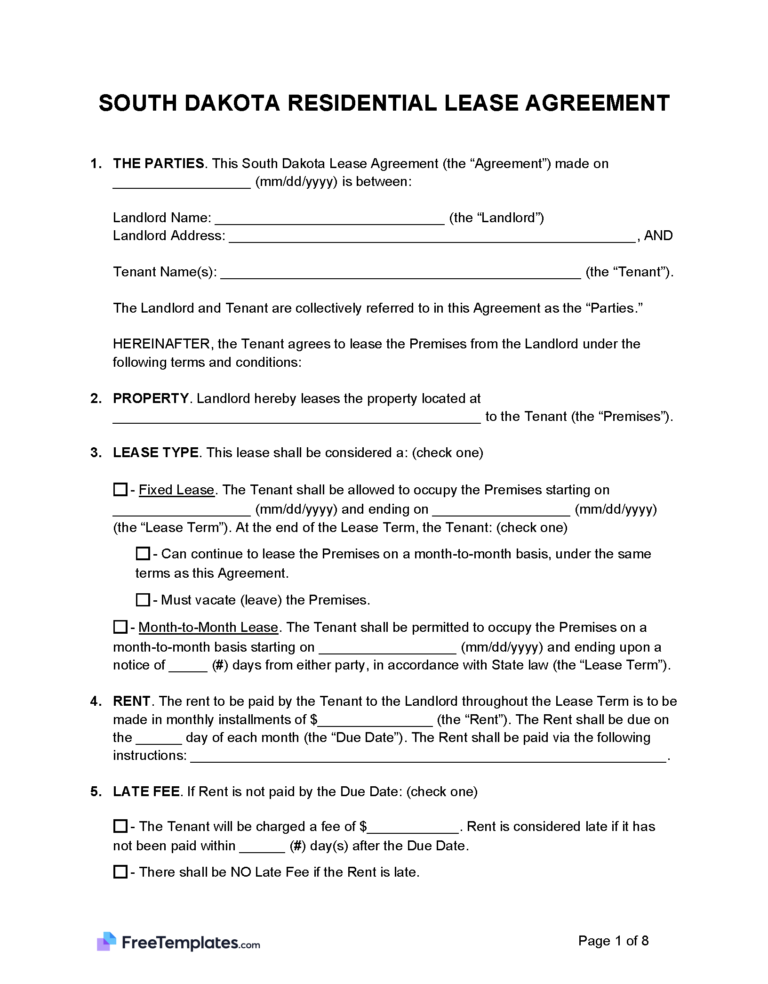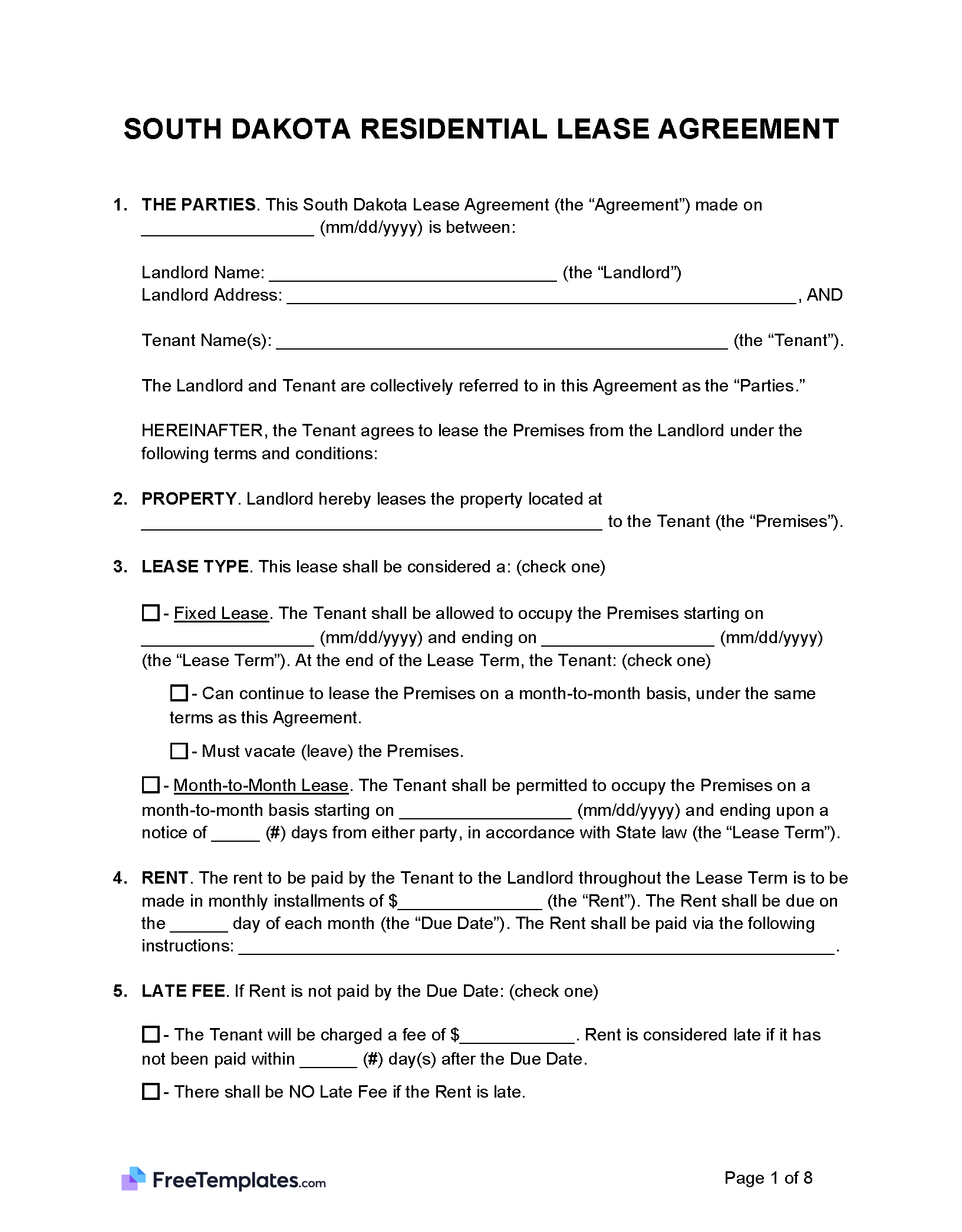By Type (6)
| Standard Lease Agreement – This is a lease between a landlord and tenant for residential use, usually lasting 12 months. |
| Commercial Lease Agreement – Similar to a standard lease, except the property is rented by a business for office, retail, or industrial space rather than residential. |
| Month-to-Month Lease Agreement – A lease with no specific termination date that may renew at the end of each month. |
| Rent-to-Own Agreement – Similar to a standard lease agreement with the ability for the renter to purchase the property from the landlord under specific terms. |
| Roommate Agreement – A document that states the responsibilities of two roommates sharing a common property or space from a landlord. |
| Sublease Agreement – With the landlord’s approval, a renter can re-rent the space to another individual. |
Disclosures (2)
Lead-Based Paint Disclosure – This form must be provided to any tenant who is leasing a property built before 1978 in the state of South Dakota. (EPA/HUD Fact Sheet)
Methamphetamine Disclosure – If there has been any known manufacturing of methamphetamines on the property, then the landlord must disclose any knowledge to new and future tenants. (§ 43-32-30)
Security Deposit
Maximum Amount – In South Dakota, the maximum a landlord may charge a tenant for their security deposit is one month’s rent. (§ 43-32-6.1)
- Exception – The security deposit may exceed one month’s rent if both the tenant and landlord agree on terms.
Returning to Tenant – The security deposit must be returned within 60 days of the lease’s end for commercial property leases. Residential properities depsoit’s must be returned within 2 weeks. (§ 43-32-24)
Collecting Interest – South Dakota law does not state whether you may collect interest on the security deposit.
Itemized List Required – A tenant may request a list of damages done to the property within 45 days of the termination of the lease for a residential property and 90 days for a commercial property.
Separate Bank Account – A landlord does not need to keep the lease’s security deposit in a separate bank account.
Landlord Access
General Access – In South Dakota, a landlord may access the property if they give the tenant what is deemed to be reasonable notice. In most states, a reasonable notice is 24 hours. (§ 43-32-32)
Emergency Access – If a landlord needs to gain emergency access to their unit for safety or health reasons, they do not need to give a notice to their tenant.
Paying Rent
Grace Period – In South Dakota, there is no grace period for failure to pay the rent on time.
Maximum Late Fee – No laws cover the maximum late fee for delayed rent payments in South Dakota.
Returned Checks (NSF) – No laws cover the fee a landlord may charge if a tenant writes a bad check.
Withholding Rent – If a tenant needs repairs done at the rented property, they may notify the landlord. If the landlord fails to repair it within a responsible amount of time, the renter may repair the unit themselves and deduct the costs from the rent due. (§ 43-32-9)
Reasons for Eviction (3)
Non-Payment of Rent – If the tenant fails to pay rent within 3 days of the due date, he or she may be evicted from the property and served with a 3-day notice to quit or pay. (§§ 21-16-1(4))
Non-Compliance – If a tenant breaks their lease by not complying with the duties and responsibilities agreed upon in the lease agreement, then they may be served an immediate notice to quit or comply. (§ 43-32-18)
Tenant Maintenance – The tenant is expected to preserve the premises and property and keep it in good condition without damaging or deteriorating the leased space. (§ 43-32-10)
Lockouts – The landlord does not legally have the right to lock their renter out of their leased property. (§ 43-32-6)
Abandonment – No state documents mention what happens if the tenant vacates the property before their lease ends.

